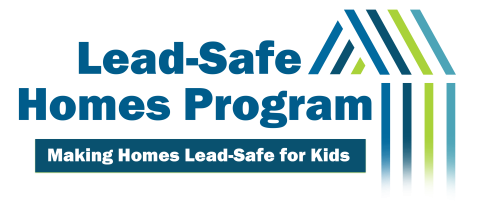Lead-Safe Wisconsin: Lead Poisoning Prevention Programs
Wisconsin’s Division of Public Health (DPH) has multiple programs focused on lead poisoning prevention, including the:
- Adult Blood Lead Epidemiology and Surveillance Program (the ABLES system).
- Certification Unit.
- Field Compliance Unit.
- Lead-Safe Homes Program.
- Wisconsin Childhood Lead Poisoning Prevention Program.
- Wisconsin Lead-in-Water Testing and Remediation Initiative. (PDF)
The goal of the ABLES system is to monitor trends in Wisconsin’s adult blood lead levels, identify, and notify workers at high risk and prevent exposure to lead in the workplace.
To learn more, call 608-264-9829 or email DHSOccHealth@dhs.wisconsin.gov.
The Certification and Field Compliance Units are responsible for ensuring that training courses leading to certification are accredited and meet minimum standards, that individuals and companies conducting lead activities are certified, and that lead work is performed using safe practices.
The Wisconsin Department of Health Services (DHS) is authorized to administer these programs under Wis. Stat. ch. 254.
To learn more, call 608-261-6876. You can also view the Field Compliance and Certification Program Units contact list.
The Wisconsin Childhood Lead Poisoning Prevention Program supports local health departments, health care providers, and community groups that work to prevent, identify, and treat childhood lead poisoning.
The state-funded program supports these groups by providing consulting, financial, and technical resources. The resources help:
- Assess lead hazard risks.
- Intervene to reduce lead hazards.
- Screen high-risk kids for lead poisoning.
The program also maintains the statewide database of blood lead testing under Wis. Stat. ch. 254.
To learn more, call us at 608-266-5817. You can also view the Wisconsin Childhood Lead Poisoning Prevention contact list.
The Lead-Safe Homes Program is available to Wisconsin residents. It helps keep kids safe from the dangers of lead poisoning. Our team of professionals are trained to remove lead from your home safely.
For more information, visit The Lead-Safe Homes Program page.
The Wisconsin Lead-in-Water Testing and Remediation Initiative tests water outlets at licensed group child care centers and Head Start programs in Wisconsin to reduce lead hazards in tap water. It’s critical to get the water tested because lead cannot be detected by sight, smell, or taste.
Interested child care centers can contact their local health department to learn more about the program. You can also read our flyer on the Wisconsin Lead-in-Water Testing and Remediation (WTR) Initiative, P-03231 (PDF).

